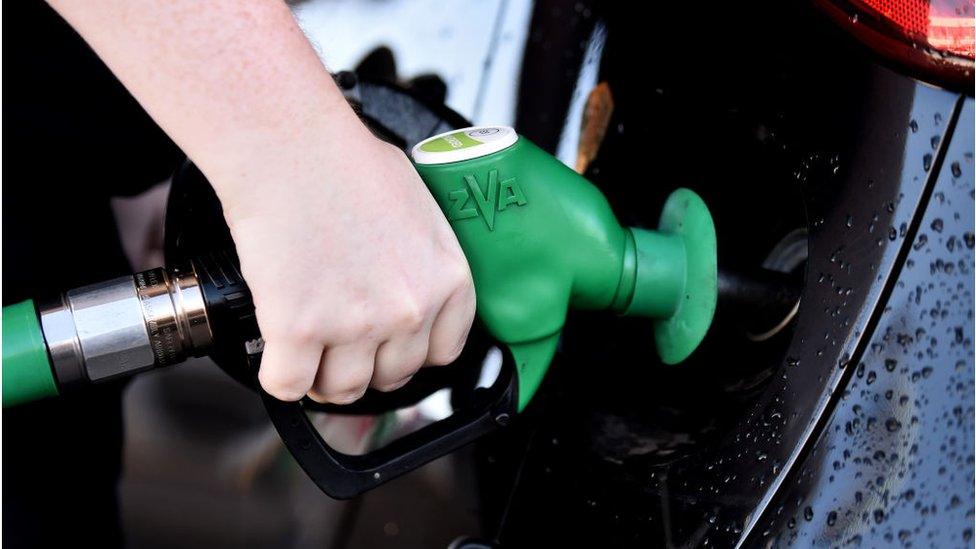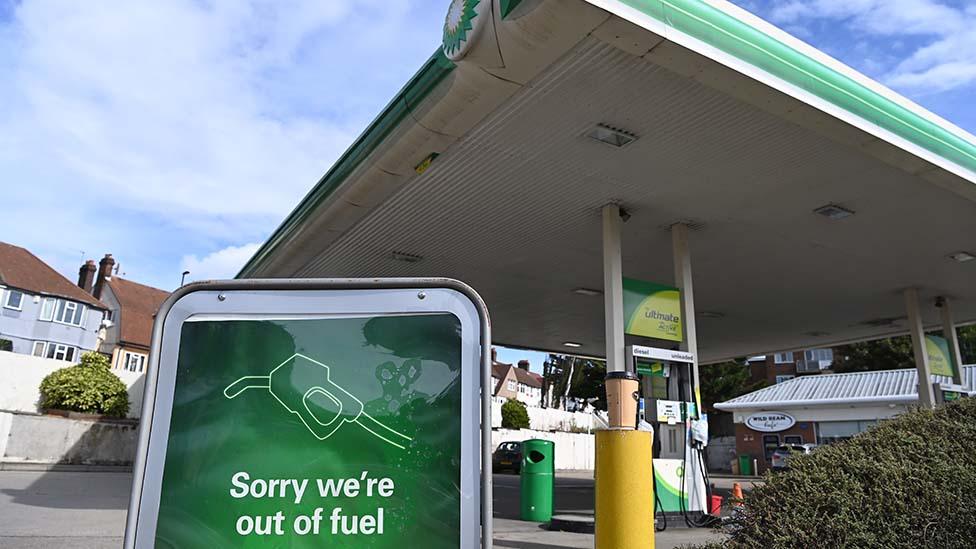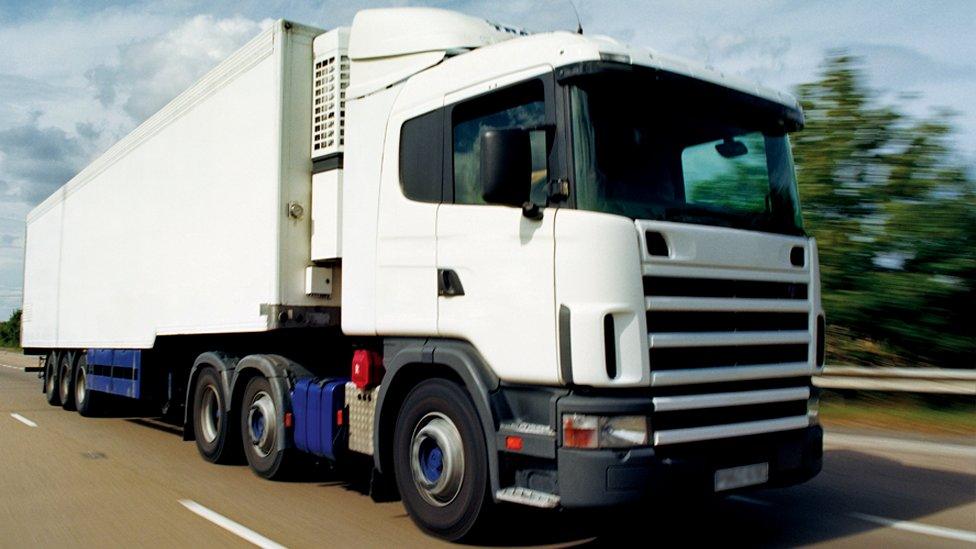Asda reports no petrol supply issues for a week
- Published
- comments

Supermarket chain Asda has said it has not had any petrol supply issues for a week as fuel demand in much of the UK eases.
Fellow supermarket Morrisons said it had "good levels of supply".
The Petrol Retailers Association (PRA) said there had been an improvement in the situation in London and the South East.
However, it said it would "take some time to rebuild stock levels" after 10% of forecourts were dry at the weekend.
Over the past weeks many forecourts in the UK ran dry as people queued to fill up due to supply chain concerns.
An Asda spokesman said on Wednesday that the chain had not had any issues for over a week now.
"There was never a shortage [at refineries]," he said. "It was always a case that any increase in demand would be temporary."
A spokeswoman for Morrisons said the supermarket chain had "good levels of supply".
Gordon Balmer, PRA executive director, said on Wednesday the situation for independent retailers continued to improve in London and the South East.
"However, it will take some time to rebuild stock levels back to normal running levels," he said.
On Tuesday the PRA, which represents nearly 5,500 of the UK's 8,300 petrol stations, also said that the fuel supply was "improving".
However, it said that over the weekend the situation had been "serious" in London and the South East, which is the most populous part of the UK.
One in ten petrol stations in the region were dry at the weekend, which was "not far behind the rest of the country" it said.
"There are many reports of wet sites quickly going dry because the continuity of tankers remains out of kilter with orders," the PRA said of the region.
During the petrol shortages that hit the UK, motorway service stations were prioritised for deliveries.
Panic buying of fuel by consumers was sparked after warnings that some petrol stations were having delivery problems.
Many parts of the UK economy, including supermarkets, other retailers, and ports, have been dealing with a shortage of lorry drivers.
The haulage industry blames this shortage on factors including Covid, Brexit, tax changes, and a slowdown in driver testing.
- Published5 October 2021

- Published15 October 2021
